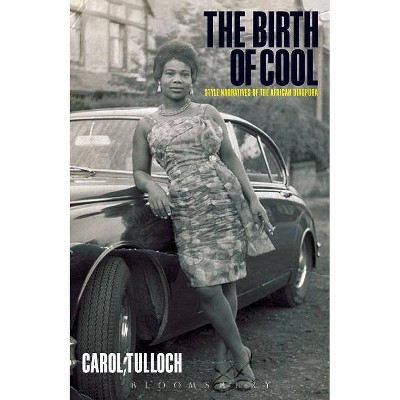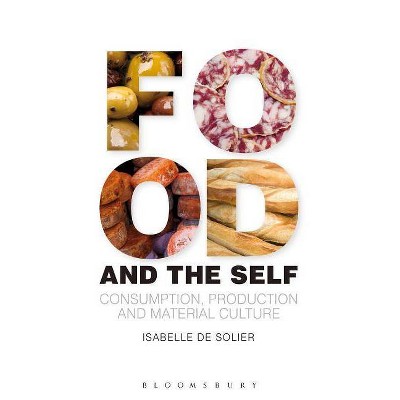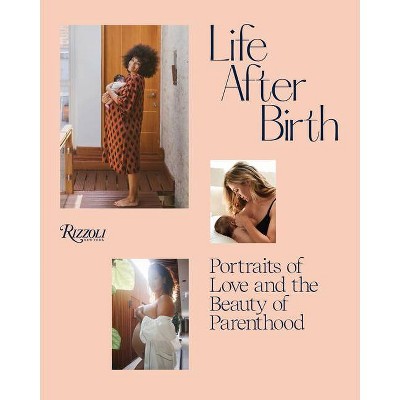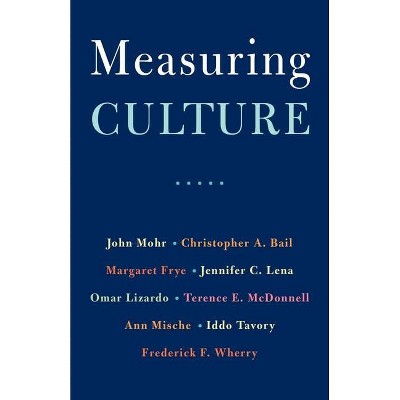The Birth of Cool - (Materializing Culture (Hardcover)) by Carol Tulloch (Hardcover)

Similar Products
Products of same category from the store
AllProduct info
<p/><br></br><p><b> About the Book </b></p></br></br>"It is broadly recognized that black style had a clear and profound influence on the history of dress in the twentieth century, with black culture and fashion having long been defined as 'cool'. Yet despite this high profile, in-depth explorations of the culture and history of style and dress in the African diaspora are a relatively recent area of enquiry. The Birth of Cool asserts that 'cool' is seen as an arbiter of presence, and relates how both iconic and 'ordinary' black individuals and groups have marked out their lives through the styling of their bodies. Focusing on counter- and sub-cultural contexts, this book investigates the role of dress in the creation and assertion of black identity. From the gardenia corsage worn by Billie Holiday to the work-wear of female African-Jamaican market traders, through to the home-dressmaking of black Britons in the 1960s, and the meaning of a polo-neck jumper as depicted in a 1934 self-portrait by African-American artist Malvin Gray Johnson, this study looks at the ways in which the diaspora experience is expressed through self-image. Spanning the late nineteenth century to the modern day, the book draws on ready-made and homemade fashion, photographs, paintings and films, published and unpublished biographies and letters from Britain, Jamaica, South Africa, and the United States to consider how personal style statements reflect issues of racial and cultural difference. The Birth of Cool is a powerful exploration of how style and dress both initiate and confirm change, and the ways in which they expresses identity and resistance in black culture"--<p/><br></br><p><b> Book Synopsis </b></p></br></br><p>It is broadly recognized that black style had a clear and profound influence on the history of dress in the twentieth century, with black culture and fashion having long been defined as 'cool'. Yet despite this high profile, in-depth explorations of the culture and history of style and dress in the African diaspora are a relatively recent area of enquiry. <i>The Birth of Cool</i> asserts that 'cool' is seen as an arbiter of presence, and relates how both iconic and 'ordinary' black individuals and groups have marked out their lives through the styling of their bodies. <p/>Focusing on counter- and sub-cultural contexts, this book investigates the role of dress in the creation and assertion of black identity. From the gardenia corsage worn by Billie Holiday to the work-wear of female African-Jamaican market traders, through to the home-dressmaking of black Britons in the 1960s, and the meaning of a polo-neck jumper as depicted in a 1934 self-portrait by African-American artist Malvin Gray Johnson, this study looks at the ways in which the diaspora experience is expressed through self-image. <p/>Spanning the late nineteenth century to the modern day, the book draws on ready-made and homemade fashion, photographs, paintings and films, published and unpublished biographies and letters from Britain, Jamaica, South Africa, and the United States to consider how personal style statements reflect issues of racial and cultural difference. <i>The Birth of Cool</i> is a powerful exploration of how style and dress both initiate and confirm change, and the ways in which they expresses identity and resistance in black culture.</p><p/><br></br><p><b> Review Quotes </b></p></br></br><br><p>"<i>The Birth of Cool</i> makes a unique contribution to studies of dress and culture, as well as to black studies and diaspora studies. Tulloch deconstructs and reconstructs black aesthetics to open new pathways for understanding the lives and social histories of figures like Billie Holiday and Malcolm X. It is one of the most impressive works I have read in years." --<i>D. Soyini Madison, Northwestern University, USA <p/></i>"<i>The Birth of Cool</i> is a sound examination that fills a yawning void in fashion studies literature, in its content as well as its methods. The book reaches across academic disciplines, geography, time and culture to mark 'cool' as a (re)volutionary act, providing a nuanced examination of fashion as a tool for individual and collective agency." - <i>Fashion, Society & Popular Culture</i></p><br><p/><br></br><p><b> About the Author </b></p></br></br><b>Carol Tulloch</b> is Professor of Dress, Diaspora and Transnationalism at Chelsea College of Arts, University of the Arts London, UK. She is also the Chelsea College of Arts/Victoria and Albert Museum Fellow in Black British Visual and Material Culture.
Price History
Price Archive shows prices from various stores, lets you see history and find the cheapest. There is no actual sale on the website. For all support, inquiry and suggestion messagescommunication@pricearchive.us



![Birth of the Cool [LP] - VINYL](https://pisces.bbystatic.com/image2/BestBuy_US/images/products/3527/35273301_so.jpg)

![Birth of the Cool [LP] - VINYL](https://pisces.bbystatic.com/image2/BestBuy_US/images/products/3206/32067415_so.jpg)













